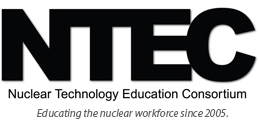N31: Management of the Decommissioning Process
Summary
This module provides a comprehensive introduction to nuclear criticality safety and the management of nuclear criticality safety in facilities, or situations, where fissile materials are encountered outside a nuclear reactor. It is designed to reflect the core competencies specified by the United Kingdom Working Party on Criticality (WPC), and consists of a basic nuclear reactor physics and fuel cycle pre-course reading component (mandatory for students who have not yet completed the N01 module) and a one-week taught component which includes a presentation from a visiting lecturer from industry/government, and an introduction to the use of Monte-Carlo codes for criticality safety analysis. The taught component is followed by a post-course criticality safety assessment that is designed to consolidate knowledge gained during the course and to enable students to join industry with a solid understanding of the criticality safety process.
On completion, students should be able to:
- Perform a comprehensive criticality safety assessment of an operational or (hypothetical) planned facility or plant, or part therein, involved in the use, storage, or processing of fissile materials
- Apply the appropriate regulatory legislation, guidance, or standards during this assessment
- Apply the appropriate regulatory legislation, guidance, or standards during this assessment
- Justify their analysis through the appropriate use of data, benchmarks, cross-comparison of methods, and/or sensitivity analysis
Syllabus
This module is split into two parts and comprises of the following topics:
- Physics of nuclear criticality
- Methods of criticality control
- Criticality accidents and incidents
- Criticality incident detection and response
- Anomalies of criticality
- Estimating sub-criticality
- Criticality codes and nuclear data
- Computer modelling for criticality safety
- Regulatory requirements and standards
- Criticality hazards during transport
- Criticality safety assessment methodology
